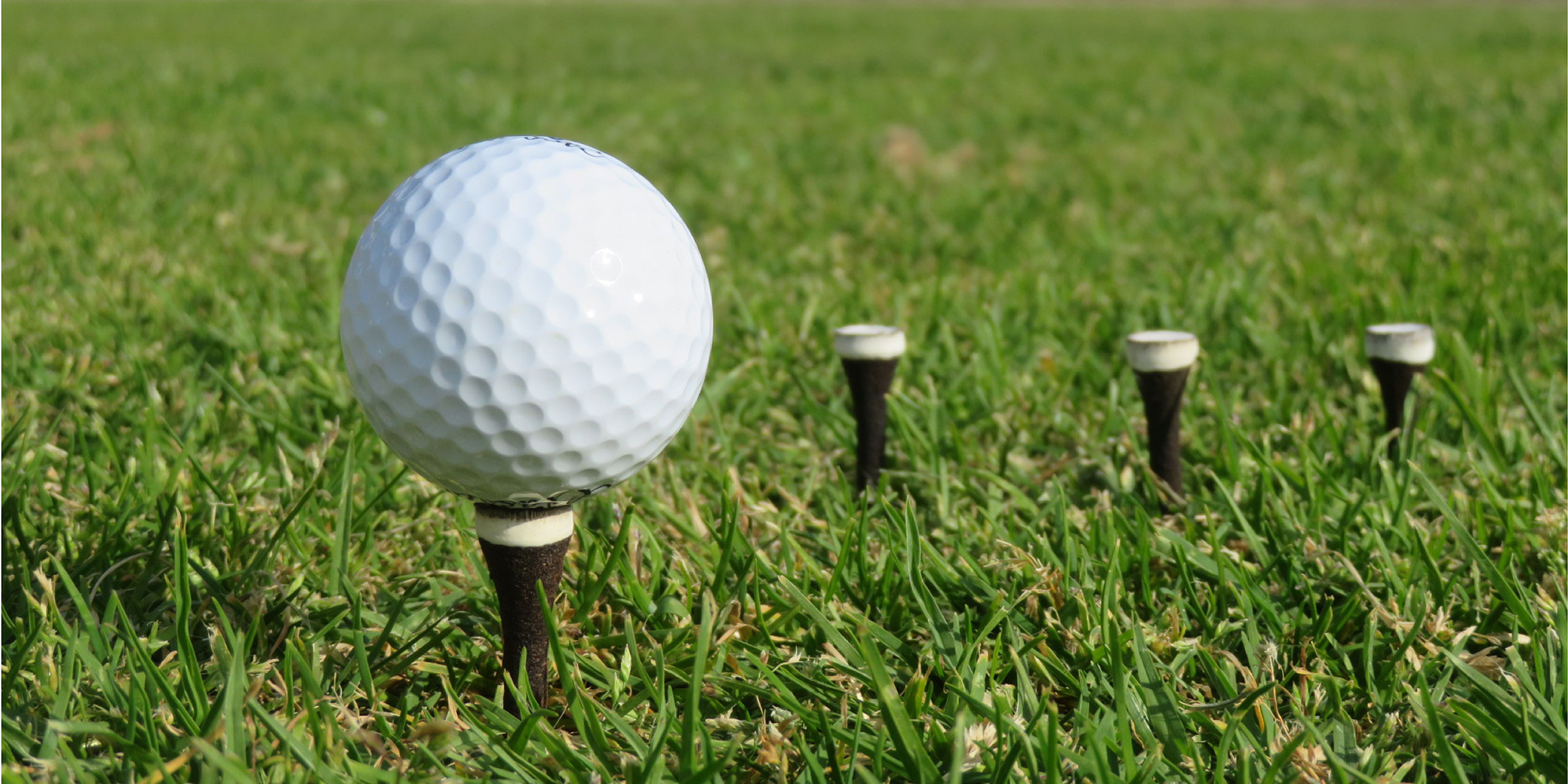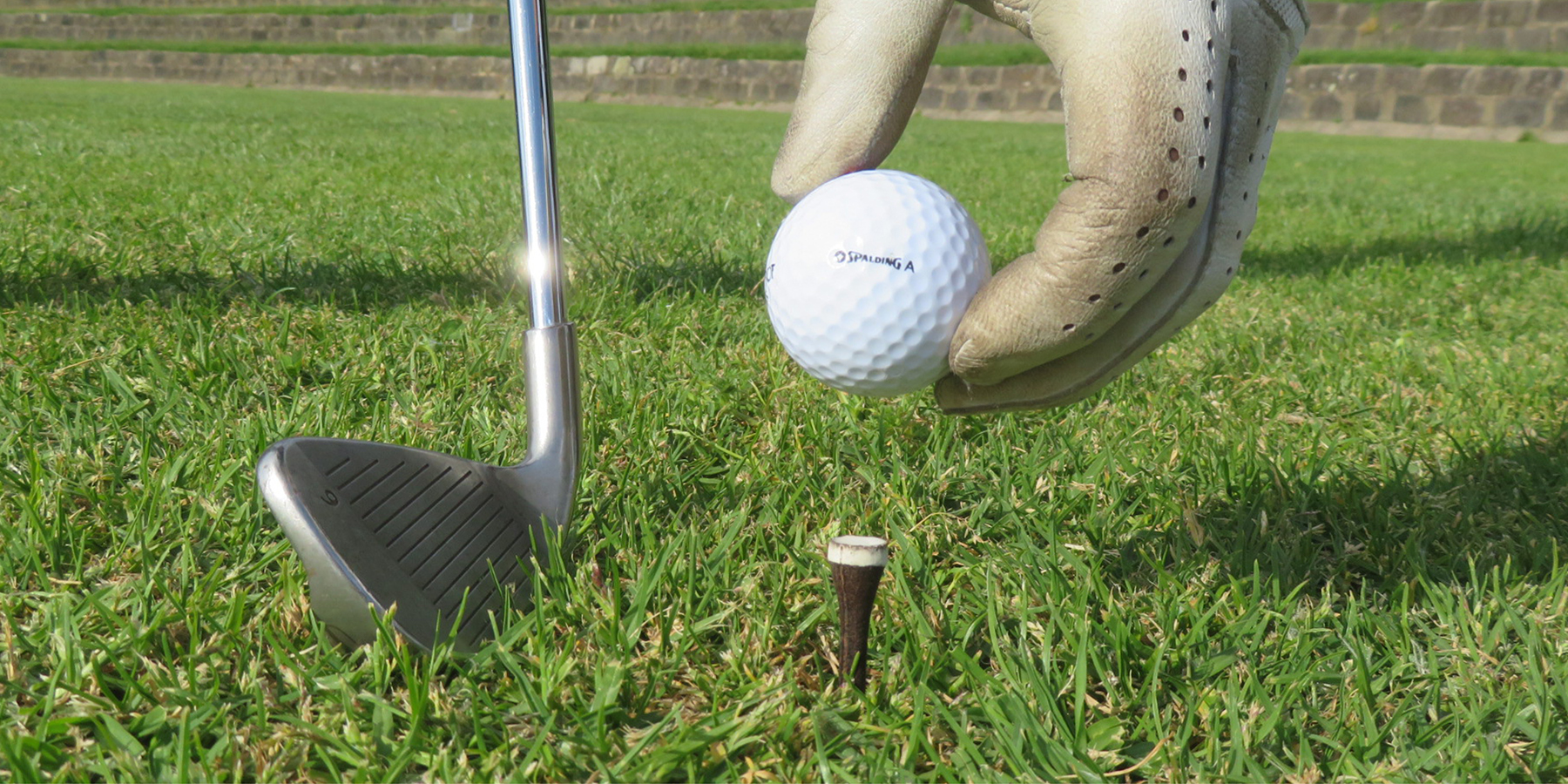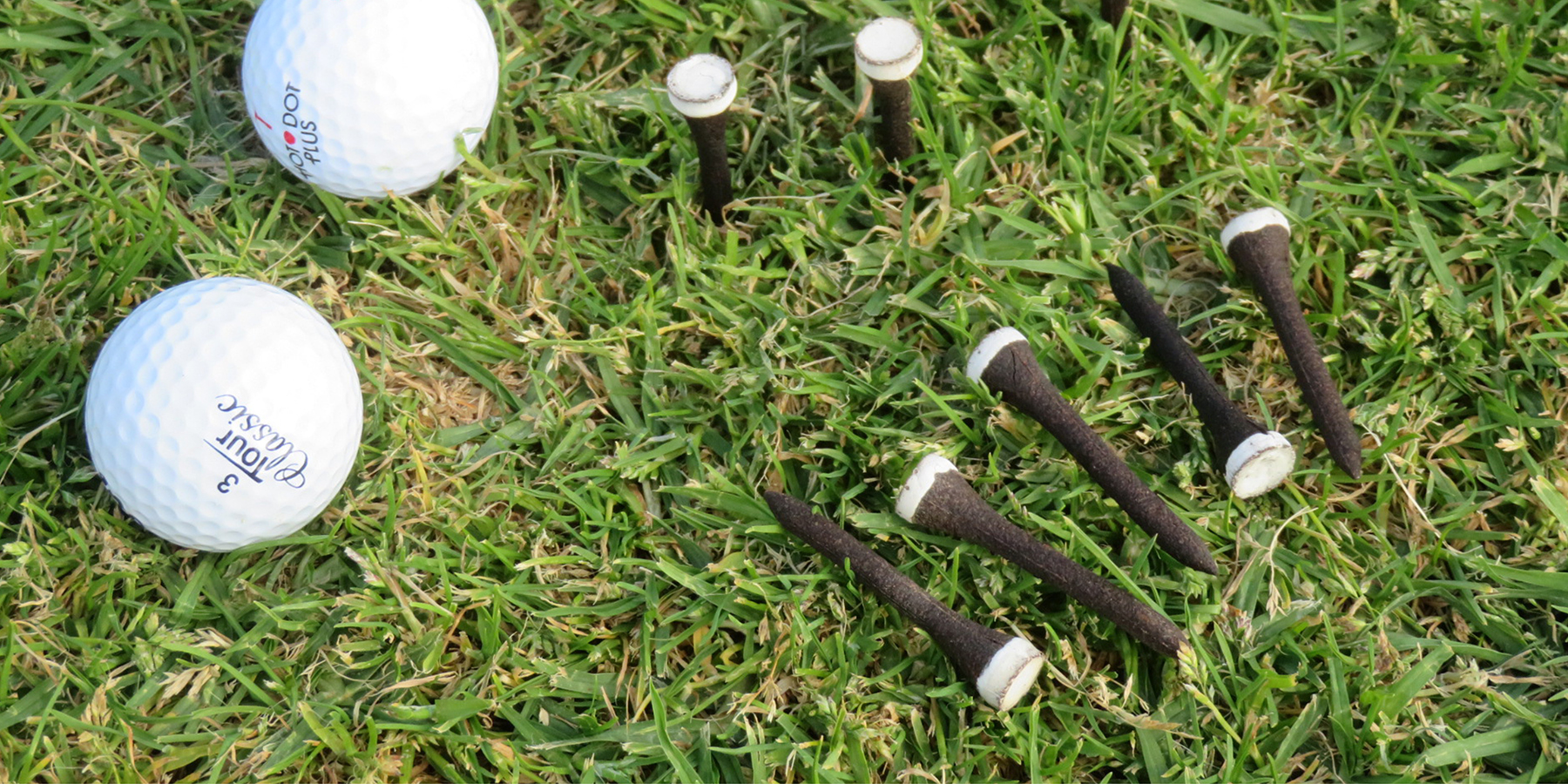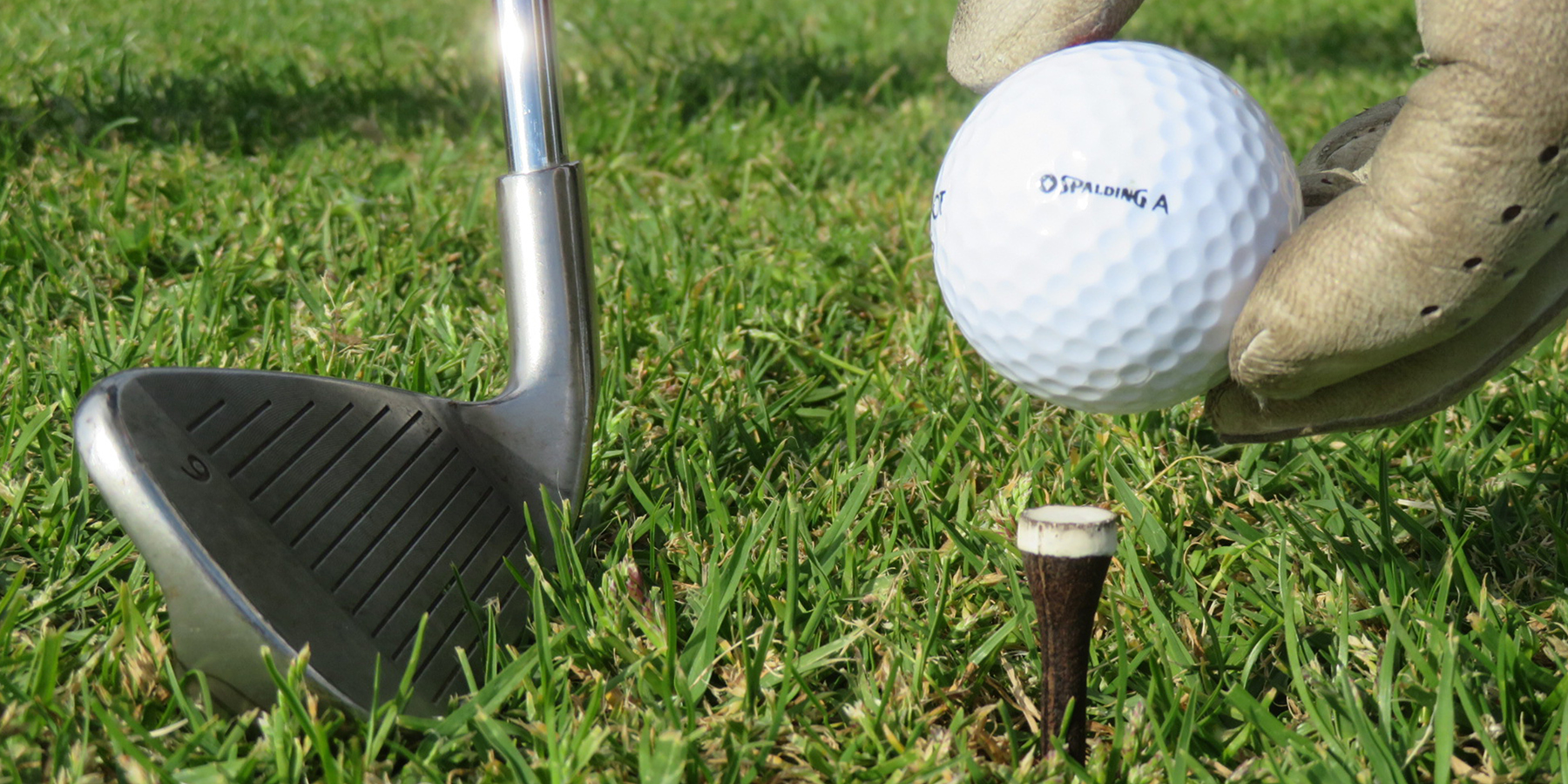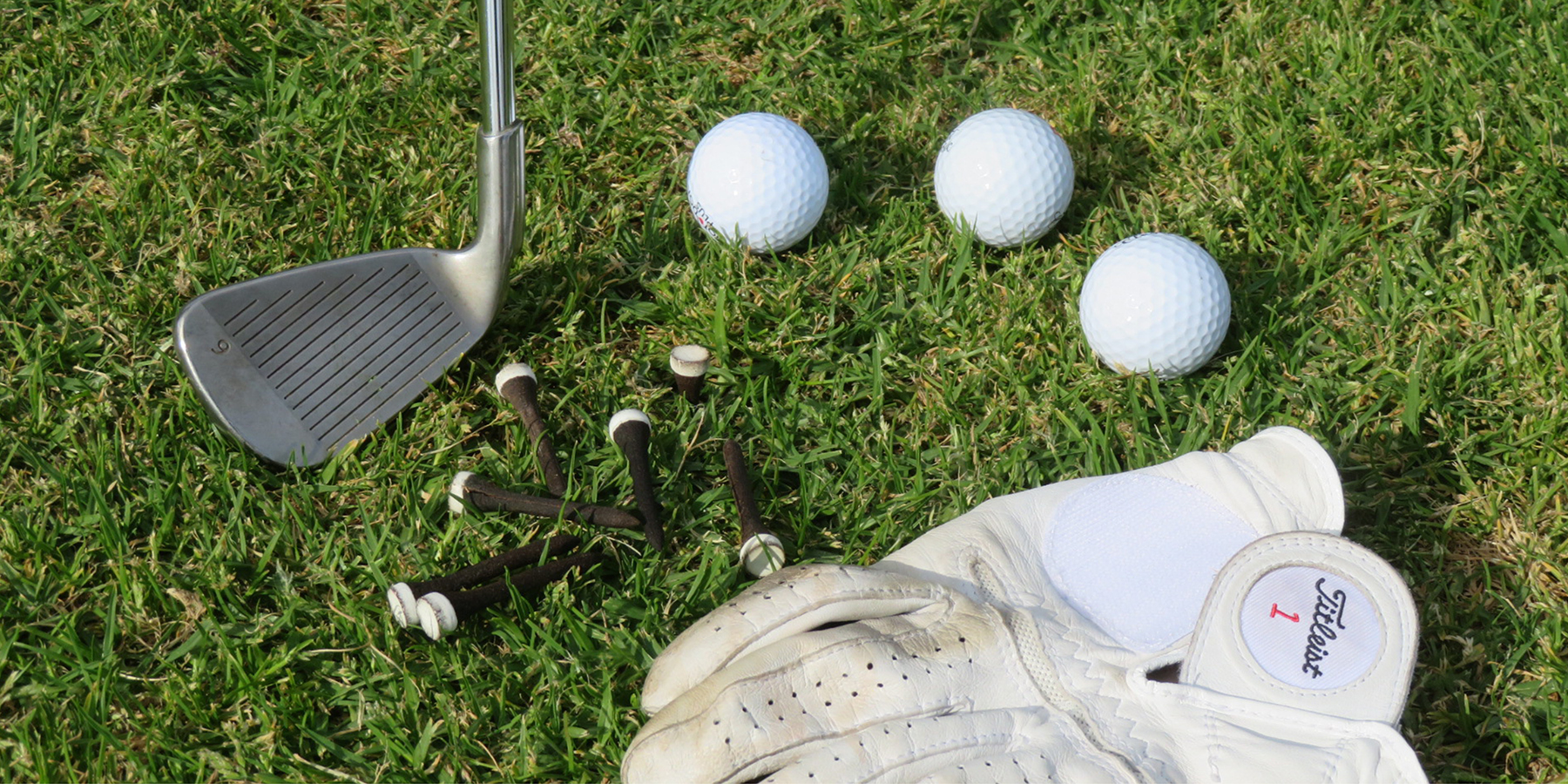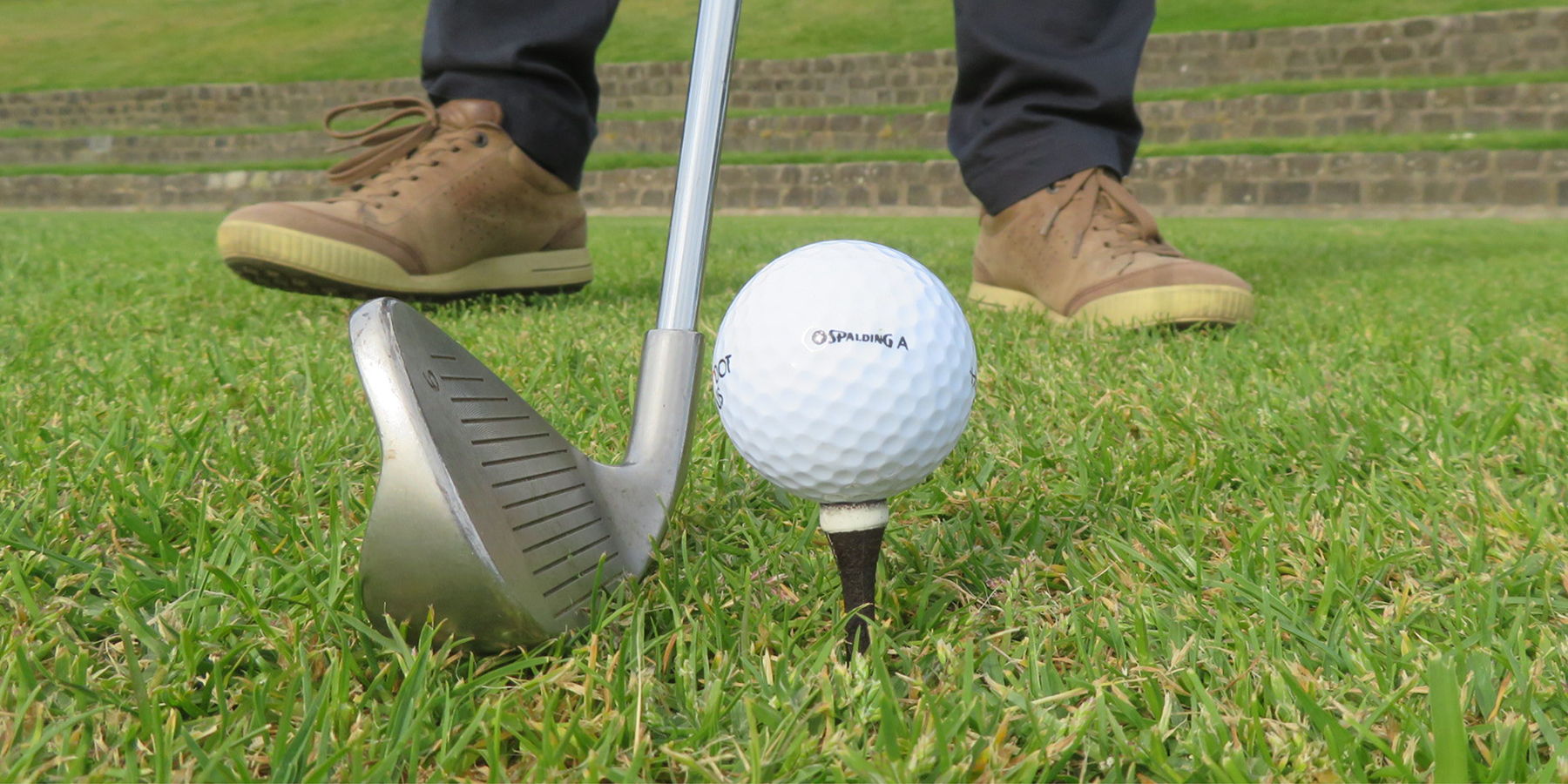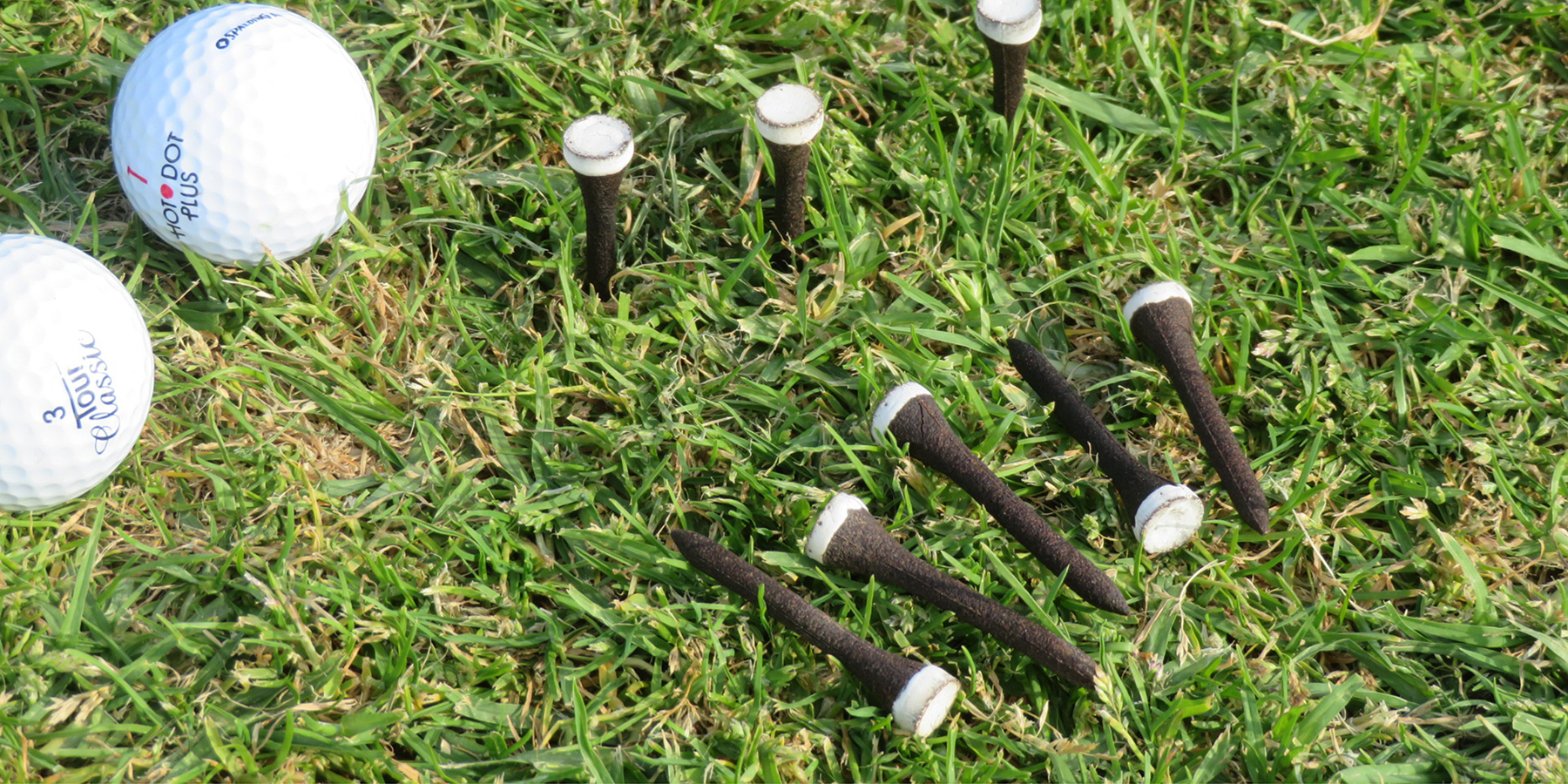The project objective was to develop a biodegradable product that supports circular design systems. Hence, A methodical design approach was undertaken, prioritising sustainable practices and innovative material development.
The process began with in-depth research, including consumer feedback, and hands-on trials to formulate custom biomaterial blends, ensuring they met the strength requirements for golf tees while remaining fully biodegradable with no harmful afterlife impact. Several iterations of testing and refinement were undertaken to produce a composite robust enough to support a golf ball and water resistant enough to prevent immediate breakdown upon contact with moisture.
The final material was crafted from compostable components, producing a dough-like texture that was pressure-moulded into the desired tee shapes and then dehydrated to achieve a durable finish. A final mould was created, along with a clear and repeatable method for shaping and producing the tees. This ensured a reliable, low-impact production system aligned with sustainable, circular material practices. The final design was realised through multiple iterations of the golf tee, with continual refinement of the composite recipe, mould design, and production method.
This iterative process ensured the product met both sustainability objectives and functional performance standards. The project fulfilled the design brief by integrating biomaterials into a biodegradable solution that exemplified circular consumption principles and challenged traditional product typologies.
The final artefact was presented alongside material samples of the refined composite, offering the audience a clear understanding of its properties and production. This effectively showcased innovative design methods and contributed meaningfully to the ongoing discourse on sustainable material use, ultimately surpassing the expectations of the brief.
Through a comprehensive, hands-on development process, the project demonstrated the practical viability of biomaterials, advocating for a shift towards circular systems and sustainable design thinking in everyday products.

